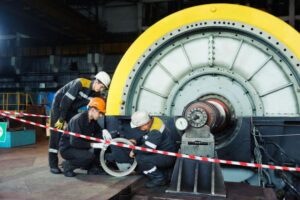
DTEK Energy Holding has invested almost UAH 2bn in repairs of its thermal power plants since the beginning of March, DTEK’s executive director Dmytro Sakharuk said.
“Now nine units are under scheduled repairs. We started the repair campaign back in March. We spent almost 2 billion hryvnias to ensure these repairs. Plus we actively extract coal. We have to put 28 faces into operation, 11 of them have already been put into operation and two more faces are to work this month,” – he said during a national telethon.
At the same time Sakharuk said that in general in the power system there are no critical situations that would lead to limitation of consumers, except for point blackouts due to shelling. According to him, under conditions of summer repair campaign of TPP and NPP, reduction of HPS generation with the end of the floods and because of the Kakhovska HPP blowing up, the thermal generation maintains the balance in the power system “plus the imports arrive in certain hours, which overlap the deficit. At the same time he pointed out that the economical consumption of electricity is always necessary, including from the economic point of view, in order to pay less for the resource.
As DTEK noted in its Telegram Channel, in May 2023 the company’s TPPs generated 20% more electricity than in May last year. In total, they have generated more than 5.7 billion kWh of electricity since the beginning of the year, which equals the average annual consumption of about 1.9 million households.
As reported, DTEK energy holding by the beginning of June repaired four power units of its thermal power plants in preparation for the autumn-winter period 2023/2024, which is 15% of the total number of power units planned for repair (a total of 27 power units are planned to be repaired within the repair campaign 2023).
Overall, DTEK needs almost UAH 7 billion to repair equipment damaged and destroyed by the enemy at its thermal power plants.
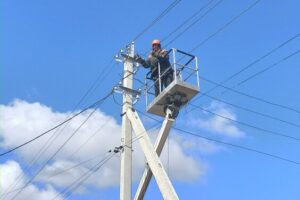
“DTEK Energy” has put 11 new coal faces into operation in five months out of the planned 28 facilities in 2023, according to a company press release with reference to CEO Ildar Saleyev.
“The scope of work in the midst of the war is huge – miners have planned to launch 28 new faces this year. From one longwall they can extract coal for 6-9 months. That is, by launching a longwall today, we are already planning to provide fuel for our thermal power plants in autumn and winter”, – he said after visiting one of the mines and a DTEK Energy’s coal preparation plant.
According to the head of the company, in June DTEK Energy will launch two more new faces in addition to the 11 already working.
According to Saleyev, constant modernization and investments are required to maintain the required rates of coal production. The other day at the company’s visited coal mining facility, miners were preparing an overhauled and modernized P-110 roadheader for its descent into the bowels.
“It received an ultramodern control system, which has no analogues at the company’s enterprises. It monitors and records parameters of the electrical and hydraulic systems of the shearer in real time and transmits this information to the specialists. As a result, the smart combine is more reliable and will help miners work without accidents and efficiently,” explained the head of DTEK Energy.
He added that in order to speed up the delivery of high-quality fuel to Ukrainian thermal power plants, one of the coal preparation plants of the energy holding also upgraded its equipment, which will accelerate coal preparation and its processing into a high-quality concentrate for further use at thermal power plants. The large-scale renewal lasted for 4 months, investment amounted to UAH 64 mln.
“We are working further to strengthen the energy front most reliably for the future heating season,” summarized the company’s CEO.
“DTEK Energy provides a closed cycle of electricity production from coal. As of January 2022, the installed capacity of the company in thermal power generation was 13.3 GW. A full production cycle has been created in coal mining: coal mining and preparation, machine building and maintenance of mining equipment.
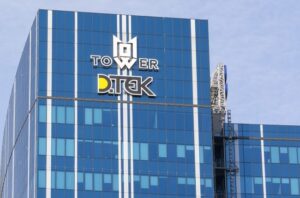
Energy companies will periodically transfer information about household customers’ debts to the Ukrainian Bureau of Credit Histories, the press service of energy holding DTEK said.
“YASNO and the Ukrainian Bureau of Credit Histories have begun cooperating. Accordingly, the bureau will now receive information about YASNO customers who have accumulated debts for consumed electricity, and this information will be displayed in their credit history,” the statement said.
As it is noted, as of May 1, 2023, household consumers have accumulated arrears of more than one month for consumed electric power in the amount of more than 1.7 billion UAH.
“In order to encourage customers to be more responsible in paying for used electricity, YASNO will periodically transmit information about household customers’ debts to the bureau,” the department explained.
So, if a client has debts on utility bills, but wants to get a loan from a financial institution, the lender will be able to see his credit history and then make a decision on this issue.
At the same time, disciplined clients who pay on time for the services they consume will be able to build a positive credit history. This step will allow them to improve their credit reputation, receive more favorable loan terms and ensure their financial stability in the future, YASNO said.
“There are customers who don’t pay for used electricity and other utilities, but take out loans, such as for another new iPhone. It is precisely for such clients that such activity is designed,” said Sergey Kovalenko, YASNO general director.
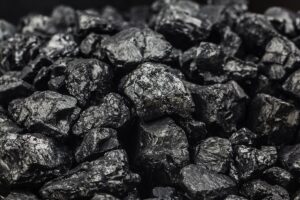
“DTEK Energy plans to launch three new longwalls in May in addition to the eight that have already been put into operation since the beginning of 2023, the energy holding said.
“DTEK Energy’s miners continue to work on supplying Ukrainian thermal power plants with coal. To this end, they have put eight new faces into operation since the beginning of the year. We plan to launch three more as early as May,” he pointed out in his Telegram channel on Wednesday.
According to the company, one of the faces has a stockpile of more than 1 million tons, which will come in handy in preparation for next winter.
“DTEK miners are making every effort to ensure that Ukraine’s generation is supplied with coal,” the energy holding said.
As reported, in 2022 coal miners of the company put into operation 28 new faces.
“In order to pass the heating season more reliably, DTEK Energy supported with fuel not only its own thermal power plants, but also found an opportunity to help state-owned ones. At the end of last year, more than 120 thousand tons of coal were shipped for their needs,” the energy holding said in March 2023.
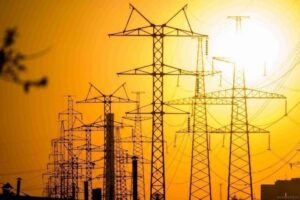
A combination of several factors: increased generation, reduced consumption due to the weekend and warm weather, as well as network repairs contributed to the absence of blackouts on Sunday, but Ukrainians still need to prepare for the application of power supply limitation schedules on weekdays, DTEK executive director Dmitry Sakharuk said.
“A combination of several factors allows today, on a particular day, not to limit consumption. But tomorrow, when it will be a working day and consumption will increase, schedules of cut-offs will be used,” Sakharuk said on the air of the National Telethon Unified News on Sunday.
At the same time, he explained that the increase of the generation and its supply was due to the return to the system of some thermal and nuclear units, the increase of the production of electricity by solar power plants due to the favorable weather conditions, as well as the networks repaired “thanks to the titanic work of energy specialists.
On the other hand, according to him, a positive role is played by warming, prolongation of the day and reduction of consumption due to the weekends.
At the same time Sakharuk specified that in addition to balance outages, that is, generation restrictions, there are also network restrictions, because of which in some areas there may still be outages.
“We still have a lot of places that were severely affected by the shelling and which have not been repaired completely, for example, Odessa, Kyiv region, Kharkiv region, Zaporizhia,” the DTEK top manager noted.
As it was reported, now all the nine nuclear power units available after the occupation of Zaporizhzhya NPP are in operation: over the last few days, the power system received additional 1220 MW of capacity after repair of one of the nuclear power units and 220 MW of additional capacity of another one due to the completion of repair of the turbine generator.
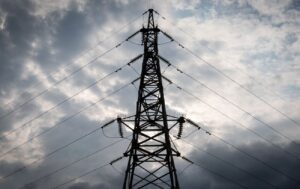
DTEK Energy Holding within the framework of Rinat Akhmetov’s Steel Front initiative in February-September this year supplied Ukrainian military and medics with over UAH 250 million worth of free electricity.
“Overall, medical and military institutions in Kyiv, Dnipropetrovsk and Donetsk regions received 45.15 million kWh of electricity. This allowed the state budget to save 250 million UAH and direct these funds to the urgent needs of the defense,” the holding said in a release on Friday.
According to it, more than 100 state and municipal medical institutions, as well as military and security agencies are provided with free electricity.
In particular, electricity is provided to Dnipropetrovsk Regional Clinical Hospital named after I.I. Mechnikov, Dnipropetrovsk Regional Children’s Clinical Hospital, Kyiv City Clinical Hospital № 8, and others.
DTEK’s press service clarified to Energoreform that supplies of free electricity continue.
The company noted that since the beginning of the war, SCM businesses, which includes DTEK, have sent more than UAH 3 billion to help Ukraine and Ukrainians, including as part of the Rinat Akhmetov Steel Front military initiative, in particular, over 150,000 bulletproof vests, over two thousand drones and radios, 700 cars, 0.5 million liters of fuel and others were made and transferred.